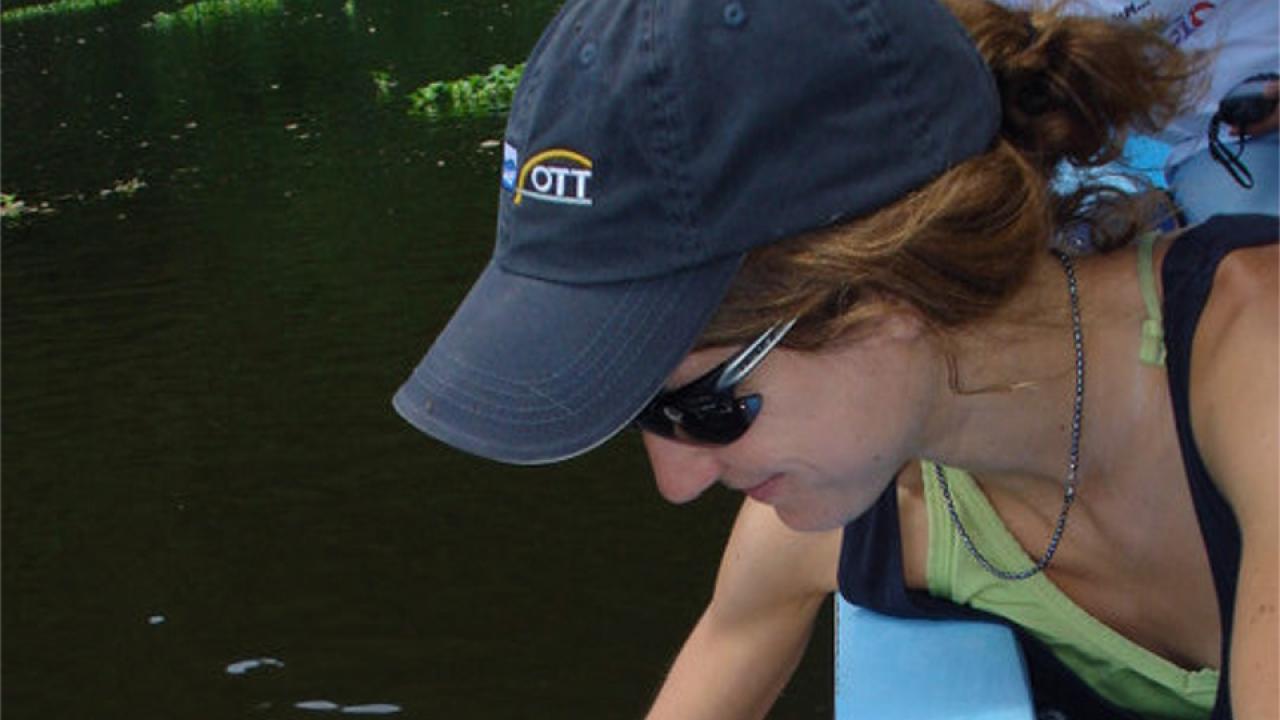
Amber Roegner
What matters to Amber?
Quick Summary
- Facilitating cultural and scientific exchange around water resources.
How do you make the field of toxicology accessible to those most impacted? It’s not an easy question to answer, but Amber Roegner, a doctoral candidate in the Pharmacology and Toxicology Graduate Group and a D.V.M. candidate, has dedicated her research to finding a solution.
Roegner currently conducts her research on campus in the department of Molecular Biosciences, but has also collaborated with other institutions while abroad. She spent time in Guatemala working on a project at Lake Atitlán, which included involvement with the UC Davis Ecology Graduate Group, University of Nevada at Reno, as well as two Guatemalan universities, Landivar University and Universidad del Valle. The project focused on understanding the origin and toxicity of certain types of algae blooms in the lake.
“I participated in lake sampling, toxin testing, and talks on public health concerns relative to lake water and native fish species, as well as on the general toxicology of harmful algae blooms,” said Roegner about her experience. “I also mentored students while getting to know all the faculty and researchers in this cultural exchange project.”
With the support of a Fulbright Fellowship, Roegner spent nine months in Uruguay at the Universidad de la República, researching advantages of alternate, time-efficient detection methods for certain types of algae blooms. She has also been awarded an EPA Science to Achieve Results (STAR) Fellowship, an ARCS Foundation Scholar Award, a T32 Clinical and Translational Science Center (CTSC) Award, among others.
The UC Davis Pharmacology and Toxicology program emphasizes global and environmental health, which is one of Roegner’s favorite aspects of the program. “I’ve also enjoyed the collaboration in research and in practice that the program has fostered,” she shared. “Toxins impact both human and animal populations alike, and often communities can feel they have little control over their exposures.” This transition from her research to practical solutions for impacted communities is the challenge. “I would like to help improve the quality of water available to the most resource-limited communities, and I hope to never give up that endeavor,” Roegner added.
Outside of her research, Roegner enjoys trail and marathon running, swimming, dancing, painting, and eating spicy foods.
Photo credit: Hugo Villavicencio.
